
The Imagine Europe open seminar gathers participants interested in discussing and experimenting with participatory and creative methods, with the aim to articulate, explore, and create knowledge and perspectives on the contemporary, so-called European ‘crisis’. The one-day seminar will include a keynote address, paper presentations, workshops, film screenings and panel discussions to create a critical and reflective dialogue with all participants, imagining a road-map to the future of Europe.
Visit imagineeurope.eventbrite.com to register
++++++++++++++++++++++++++++++++++++++++++++++++++++++++++++++++++++++++++++++++++++++++++++++++++++++++++++++++++++++++++++++++++++++++++++++++
++++++++++++++++++++++++++++++++++++++++++++++++++++++++++++++++++++++++++++++++++++++++++++++++++++++++++++++++++++++++++++++++++++++++++++++++
9.30 AM – 10:15 AM | KEYNOTE in The Old City Council Hall
Telling the story differently: Visual sociology as a way to communicate academic research on Cyprus
by Nico Carpentier
10:30 AM – 12:30 PM | PAPER SESSION in The Old City Council Hall
by Maria Nilsson
Immigrants in the Sexual Revolution: Perceptions and participation in Northwest Europe
by Andrew DJ Shield
by Siddharth Chadha
Images of the New Europe: Conceptual Ideas of the European and post-1989 European Films
by Alex Forbes
1:30 PM – 2:45 PM | WORKSHOPS in Forsamlingen and Orangeriet, Byens Hus
Meetup at 13:20 PM in the Sct. Laurentius Tower
Forum Play on Cross-Cultural Communication Challenges: A method for inviting discussion by acting
by Birgitte Ravn Olesen
Playing for Integration: Diversophy for neighbours
by Anne Fox & Line Mark Rugholt
3 PM – 5 PM | FILM SCREENINGS & PANEL DISCUSSION at The Old City Council Hall
Ten Europes: The transnational television channel Arte and scripts for trans-European belonging
by Damien Stankiewicz
Click to Remain: An essay film on digital political activism, Brexit and love
by Valerie von Kittlitz & Maren Wickwire
Vision of Europe: A poetic documentary filmed in Kyiv, Ukraine
by Mike Latto
HotSpot: A film about being in-between, resilience, hope for a better future
by Tony Maslić
++++++++++++++++++++++++++++++++++++++++++++++++++++++++++++++++++++++++++++++++++++++++++++++++++++++++++++++++++++++++++++++++++++++++++++++++
In order of appearance.
++++++++++++++++++++++++++++++++++++++++++++++++++++++++++++++++++++++++++++++++++++++++++++++++++++++++++++++++++++++++++++++++++++++++++++++++
9.30 AM – 10:15 AM | KEYNOTE in The Old City Council Hall
++++++++++++++++++++++++++++++++++++++++++++++++++++++++++++++++++++++++++++++++++++++++++++++++++++++++++++++++++++++++++++++++++++++++++++++++
In November 2015, a photo exhibition on statues and commemoration sites in Cyprus, and their echoes of the Cyprus Problem (the 43-year long division of the island, resulting in Turkey occupying part of the EU's territory), took place in Nicosia, the capital of Cyprus. It then moved to Limassol, where it was displayed at the NeMe Arts Centre, for three weeks in January-February 2016. The exhibition was entitled “Iconoclastic Controversies. A visual sociology of statues and commemoration sites in the southern regions of Cyprus”.
The exhibited corpus of 20 photographs, produced during a research stay in Cyprus in 2013-2014, dealt with a very political-ideological theme.
It was an academic reflection on how statues and commemoration sites narrate and frame the Cyprus Problem, one of the forgotten European conflicts that involved Cyprus, Greece, Turkey and the UK, that deeply affected the Eastern Mediterranean part of Europe, and that demonstrated the destructive nature of antagonistic nationalism in Europe. These statues and commemoration sites contain references to the “Self” and the “Other” by presenting a heroic “self” to the “own” community, or by showing the suffering of the “self”. But the exhibition also investigated how some (exceptional) statues undermine this representation of the “self” and offer a different narrative of the conflict, and the identities of the people involved (http://nicocarpentier.net/icontroversies/). As part of the exhibition, and in order to stimulate further dialogue, three seminars, open to the public, were organised by partner NGOs during the period of the exhibitions, inviting speakers and audiences ‘to reflect about the role of history, memory and identity in Cyprus’.
This project will be used to reflect on the possibilities and limitations of using the genres of photography and the exhibition to communicate academic research, moving away from traditional forms of science communication, which often pay lip service to the logics of outreach but then limit themselves to an occasional op-ed in a mainstream newspaper, or -if they are truly courageous- produce a short science communication video that can be uploaded on YouTube (or a similar platform).
%20Pierre%20Morelli_cirkelformat_SH.png)
Nico Carpentier is Professor of Media and Communication Studies at the Department of Informatics and Media of Uppsala University, Associate Professor in the Communication Studies Department of the Vrije Universiteit Brussel, and Docent at Charles University in Prague. His latest book is The Discursive-Material Knot: Cyprus in Conflict and Community Media Participation. His website, including publications available in open access, is http://nicocarpentier.net/.
++++++++++++++++++++++++++++++++++++++++++++++++++++++++++++++++++++++++++++++++++++++++++++++++++++++++++++++++++++++++++++++++++++++++++++++++
10:30 AM – 12:30 PM | PAPER SESSION in The Old City Council Hall
++++++++++++++++++++++++++++++++++++++++++++++++++++++++++++++++++++++++++++++++++++++++++++++++++++++++++++++++++++++++++++++++++++++++++++++++
The so-called “refugee crisis” in Europe of the past few years has garnered heavy media attention saturated with countless images of refugees risking and oftentimes losing their lives in the Mediterranean Sea while attempting to cross into the European Union. Yet, while these stories of migration are newsworthy and certainly important, they nevertheless present image-makers and artists with a set of challenges. One challenge, in light of the continuous media coverage and a barrage of images, is how to break through a compassion fatigue and a problematic spectatorship of suffering, following Susan Sontag and Lilie Chouliaraki. Another challenge is the politics of representation, following Stuart Hall and Jacques Lacan, in stereotypical media representations of the inferior Other.
This research paper focuses on creative strategies for addressing migration through a participatory lens. Specifically, it discusses and analyses the work of Tina Enghoff, a Danish visual artist, videographer and designer who, through her practice, delves into structural and social issues in long-term projects, using photography, documentary film, multimedia and other media and formats. The proposed presentation will focus primarily on two projects from Enghoff’s practice: “Migrant Documents,” a collaboration with undocumented migrants in Copenhagen who photograph the city while Enghoff portrays their belongings and documents. By assuming the role of curator, the artist privileges the perspectives of migrants in their exploration of the city. Thus, through exhibition installations and in book-form, the migrants’ invisibility as paperless turns into visibility. The second project to be discussed is Seven Years, about women who have moved to Denmark from “non-Western” countries and who are victims of abuse yet unprotected by Danish law. In this project, Enghoff collaborates with the women in creating photographic portraits of the sites where something traumatic has happened.
The purpose of this project and, specifically, of the proposed presentation, is to examine a critical creative practice, with a particular focus on visual representation and agency and to discuss strategies for participatory communication projects. A dual purpose is to expand the notion and definition of “European” identity along with the seminar theme, “Imagine Europe.”
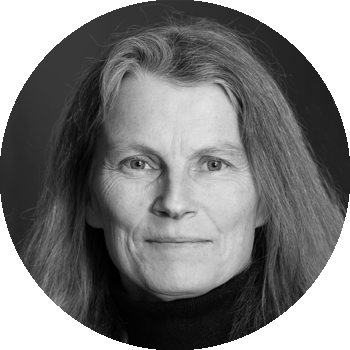
Maria Nilsson (Ph. D. University of Iowa) is a scholar and educator based in Stockholm, Sweden, and formerly the director of graduate studies for photography at Mid Sweden University (Sweden). Her research interests include the truth claim and credibility in visual storytelling, histories of photography and visual archival studies.
This book talk focuses on the latter half of the twentieth century, when much of northwest Europe grew increasingly multicultural with the arrival of foreign workers and (post-)colonial migrants, whilst simultaneously experiencing a boom in feminist and sexual liberation activism. Using multilingual newspapers, foreign worker organizations’ archives, and interviews, this book shows that immigrants in the Netherlands and Denmark held a variety of viewpoints about European gender and sexual cultures. Some immigrants felt solidarity with, and even participated in, European social movements that changed norms and laws in favor of women’s equality, gay and lesbian rights, and sexual liberation. These histories challenge today’s politicians and journalists who strategically link immigration to sexual conservatism, misogyny, and homophobia.
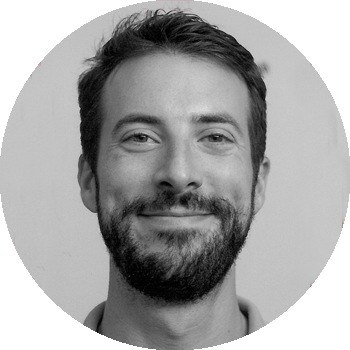
Andrew DJ Shield is Fellow and Lecturer at Roskilde University, Denmark, where he focuses on the intersections of immigration, race, gender, sexuality, and media in Europe.
This presentation reports on the research on the political logics of participation within the empirical setting of queer film festivals in Sweden. The research uses Discourse Theoretical Analysis (DTA) as an analytical framework for a study of the Malmö Queer Film Festival, a theme-based festival, which in 2017 focussed on films and discussion about (in)accessibility of film, culture and the HGBTQIA-communities for people with disabilities (differently abled bodies and minds).
The research contains itself within a political definition of ‘participation as equalisation of power relations between privileged and non-privileged actors in formal or informal decision-making processes’ (Carpentier 2016). It uses participant observation, supplemented with informal interviews to understand the discursive and material actions of the film festival organisers in decision-making moments and evaluates the balance/unbalance of power positions and the struggles between these actors. It further uses this analysis of (minimalist or maximalist) participatory intensities of the Queer film festival organization in comparison with a qualitative content analysis of the discursive outcomes (audience screenings and discussions) of the festival as a counter-hegemonic struggle for HGBTQIA identity politics.
The paper argues that a maximalist form of participation (in its political sense) is a signifier which in the discursive-material setting of queer film festivals emerges as a necessary condition for establishing a counter-hegemonic articulation of HGBTQIA identity politics. However, the discursive and material ‘presence' of participation within the practices of queer film festival organization remains elusive, thereby pointing to its contingent nature. The ontological meaning of participation, therefore emerges as a dialectic of necessity/contingency, in which the contingent affirms the necessary while simultaneously impeding its full constitution. At the societal level, participation is to be understood as a constant struggle that can only be interpreted through its relative intensities, within the specific discursive-material conditions that facilitate a particular logic of power and decision-making.
Based on this research, the presentation re-imagines the future of Europe as one that is constantly engaged in the struggle for creating counter hegemonies through fostering a maximalist form of participatory identity politics. This vision of Europe acknowledges a perpetual state of negotiations as the starting point of dialog, thereby opening itself to possibilities of inter-sectional dialogs between competing discourses and formation of broader alliances based on common normative grounds.
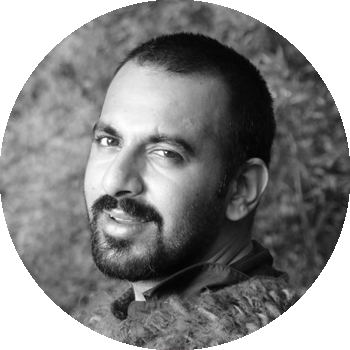
Siddharth Chadha is a PhD candidate in Media and Communication Studies at the Department of Informatics and Media, Uppsala University, Sweden. He has previously completed a M.Phil in Philosophy from Panjab University in India. His research areas are post structuralism, discourse theory, political participation, LGBTQIA+ film festivals. Alongside his academic work, Siddharth is an indie filmmaker and a community media practitioner. He is the Secretary of the Participatory Communication Research (PCR) section of the International Association for Media and Communication Research (IAMCR).
++++++++++++++++++++++++++++++++++++++++++++++++++++++++++++++++++++++++++++++++++++++++++++++++++++++++++++++++++++++++++++++++++++++++++++++++
Can Europe be said to posses any form of unity, may it have an identity, does it and should it have a political or cultural form? In other words, what does 'European' really mean? These questions are asked now with a force and urgency that they knew most recently during the time of Maastricht and of the Yugoslavian War, after the 1989 collapse of 'real existing Socialism', and during the breakup of the Soviet Union.
Europe may take the figure of a dystopian combination of neo-liberal economic determinism and historical exclusionism based on identitarian categories. The cinematic form of this figure is wellknown: examples include Europa (Lars von Trier, 1991) and Underground (Emir Kusturica, 1995). I will examine films which suggest the image of an opposite view, in which Europe represents a utopian possibility for the refounding of an egalitarian polity.
The consequences of the post-1989 era of European reformulation continue to shape the Europe of today. In that period, cinema, itself faced with a crisis of obsolescence which has not gone away, responded to the urgent and anxious questioning of the nature of Europe. Recently, scholars such as Randall Halle (2014), Mariana Liz (2016) and Kriss Ravetto-Bagioli (2017) have asked the question of the interactions between Europe on screen and on the map. Work remains to be done, however, on the the connection between films and philosophical writing which, in their respective intellectual spheres, attempted to articulate a hope which underpinned many of the revolutionary changes of 1989.
I will examine two films in close, detailed readings. Three Colours: Blue (Krzysztof Kieślowski, 1993) echoes Jacques Derrida's sceptical, yet hopeful regard on post-1989 Europe in The Other Heading (1991). The film sets up an oxymoronic juxtaposition between the euphoric official discourse on Maastricht and European Union and an individual work of mourning. In terms which strongly recall Derrida's argument, however, it not only critiques the hollowness of official rhetoric but suggests the possibility of a deeper, stronger social relation based on collectivity and acceptance of otherness.
Ulysses' Gaze, (Theodoros Angelopolous, 1995) confronts the new Europe with the apparent negation of all its ideals and values in the siege of Sarajevo. Amidst rubble and despair, however, the film articulates a cosmopolitan intellectual ideal which recalls the utopian Europe of Jan Patočka, itself made newly topical after 1989 by the political success of his former student Václav Havel.
Ulysses' Gaze also includes an extended sequence involving a dismantled statue of Lenin. The demolition of such statues became topical once again at the beginnings, in 2013-14, of the ongoing crisis in Ukraine. In such echoes, the influence of the post-1989 period on the present asserts itself, and indicates how much a deeper understanding of its films may tell us about the crisis facing Europe in the present day.
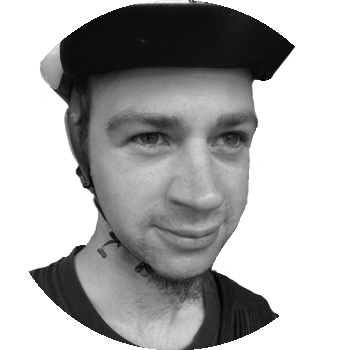
Alex Forbes' research associates early 1990s films made in Europe with conceptual ideas of the European. Taking in categories such as the aftermath of the revolutions of 1989 in Eastern Europe, the post-Cold War, and the post-Soviet, his work also engages with French scholarship on the ongoing process of European redefinition initiated by the collapse of the Soviet Union and the end of an era of superpower confrontation.
++++++++++++++++++++++++++++++++++++++++++++++++++++++++++++++++++++++++++++++++++++++++++++++++++++++++++++++++++++++++++++++++++++++++++++++++
1:30 PM – 2:45 PM | WORKSHOPS in Forsamlingen and Orangeriet, Byens Hus
Meetup at 13:20 PM in the Sct. Laurentius Tower
++++++++++++++++++++++++++++++++++++++++++++++++++++++++++++++++++++++++++++++++++++++++++++++++++++++++++++++++++++++++++++++++++++++++++++++++
Forum Play is a method for exploring and rehearsing possible actions that people can take to transform their world. At the workshop a group of refugees, living in Roskilde/Lejre on an integration programme and me, associate professor at Communication Studies, RUC, will invite the participants (max 20 persons) to be part of a search for possible ways to handle challenges in specific situations experienced by us and/or the participants. The workshop is based on Augusto Boal’s ”Theatre of the oppressed”, which is shortly described as a method to “discuss in praxis”, that is to try different ways of acting in order to find ways to shake or transform the presented challenges.
In the Theatre of the Oppressed, “the audience” become active, as actors, while they and we explore, show, analyse and transform the challenging situations we are playing out. The point is not to show what we think other people should do — it is to discover what we can do!
Programme
1/ Welcoming, introduction and an ice-breaking exercise
2/ In groups of 5 people, each participant tells about a situation where he/she did not feel understood. The reason why everybody tells a story is that we want to make a common understanding saying that situations that are difficult to handle are a common condition.
3/ The group selects the situation that they experience either as most commonly known or most difficult to overcome. The participant who told (and previously experienced) the selected story instructs the others in order to form a play for the rest of the groups.
4/ In plenary, the first group plays through once without interruption while the other participants observe. After reaching the conclusion prepared in the group, in which the “oppressed character(s)” fail to overturn their communication challenge(s), the actors begin the production again. At any point during this second performance, any participant may call out "stop!" and take the place of the actor portraying the “oppressed individual”. It is only the oppressed character's position that can be replaced. The participants who play the other parts keep their part, but act in relation to how they are met by the participants who occupy the ”oppressed character”. When all ideas are tried out and the situation at play has changed, we sum up, what we learned. Then it is time for the next group to enter “the stage in the circle”.
Forum-Play: A method for collaborative and context-sensitive knowledge production and action
Roleplay is often used in educational and organizational settings. Some are based on the idea that you can acquire skills in a simulation room, which can then be repeated in authentic interactions. In educational contexts, these types of role-plays are used in e.g. language teaching (Sandevik & Waade, 2006) and in the health care field, and simulation training is a growing area (Ravert & Hunter, 2010) with the purpose to qualify profession-specific actions. Some researchers have problematized such a transfer from simulated to authentic spaces (Stokoe, 2013) and Cunliffe points out that learning does not manifest itself in linear and chronological processes. They are often extremely disorganized and rooted and connected with the attempt to create connections and meaningfulness in what was initially not understandable (Cunliffe, 2002).
Roleplay is also used in a tradition based on a quite different epistemology, meaning that answers to how to act in a situation will always be context specific and related to knowledge/power relationships. Quinlan (Quinlan, 2009) points out that roleplay can create practical and collaborative knowledge because the games are based on the participants' different experiences. In this process, normative understandings can be tested and critical reflections shared.
I am working in relation to the last-mentioned tradition, and I work with a specific sort of roleplay called Forum-play. Here “the audience” become active, as actors, while exploring, showing, analysing and transforming the challenging situations we play out. Forum-plays can be seen as a method to “discuss in praxis”, that is to try different ways of acting in order to find ways to shake or transform the presented challenges.
The point is not to talk about what we think we ourselves or other people should do — it is to discover what we can do by trying different ways of acting.
I think that Forum-play is amazing as a method for creating situational and dynamic knowledge about what is at stake in people's complex, everyday practice. The method is highly inspired by Augusto Boal’s “Theatre of the oppressed” (Boal, 1974), but a lot has changed since Boal introduced his theatre methods. Today we do in the Western World experience a very complex and individualised/individualizing society, where it is hard to figure out where to begin, if we want to make changes for ourselves.
I have worked with Forum-play in many different settings: In an institution with mentally and physically challenged people, in a language school for young refugees, at a censorship meeting, and in several professional and educational settings related to health care.
When analysing the collaborative processes of knowledge production, I use Phillips´ (Phillips, 2011; Phillips et al., 2013) take on Bakhtin´s concepts about polyphonic voices and “centripetal/centrifugal forces”, and Foucault´s concept on knowledge/power. My purpose is to discuss how Forum-play can nuance and qualify critical reflexivity on possible actions and how the same methods can be seen as another social technology of self-governance (Bakhtin, 1981; Deeny et al 2001; Dennison, 2011; Edmiston, 2012; Erel et al 2017; Foucault, 1980).
Literature
Bakhtin, M. M. (1981). The Dialogic Imagination. Four Essays. Austin & London: University of Texas Press.
Boal, A. (1974). Theatre of the Oppressed. London: Pluto Press.
Cunliffe, A. L. (2002). Reflexive Dialogical Practice. Management Learning, 33(1), 35-61.
Deeny, P., Johnson, A., Boore, J., Leyden, C., & McCaughan, E. (2001). Drama as an Experiential Technique in Learning How to Cope with Dying Patients and their Families. Teaching in Higher Education, 6(1), 99-112. doi:10.1080/13562510020029635
Dennison, S. (2011). Interdisciplinary Role Play Between Social Work and Theater Students. Journal of Teaching in Social Work, 31(4), 415. doi:10.1080/08841233.2011.597670
Edmiston, B. (2012). Dramatic Inquiry and Anti-Oppressive Teaching. Youth Theatre Journal, 26(2), 105-119. doi:10.1080/08929092.2012.722906
Erel, U., Reynolds, T., & Kaptani, E. (2017). Participatory theatre for transformative social research. Qualitative Research, 17(3), 302-312. doi:10.1177/1468794117696029
Foucault, M. (1980). Truth and Power. In C. Gordon (Ed.), Power/Knowledge. Selected Interviews and other Writings 1972–1977. Hemel Hempstead: Harvester Wheatsheaf.
Quinlan, E. (2009). New action research techniques. Action Research, 8(2), 117-133. doi:10.1177/1476750309335204
Phillips, L. 2011. The Promise of Dialogue. The dialogic turn in the production and communication of knowledge Amsterdam, John Benjamins Publishing Company.
Phillips, L., Kristiansen, M., Vehvilâinen, M. & Gunnarsson, E. 2013. Knowledge and Power in Collaborative Research: A Reflexive Approach, London, Routledge.
Ravert, P. K., & Hunter, C. (2010). Nursing Students´ Perceptions of learning outcomes throughout simulation experiences. Undergraduate Research Journal for the Human Sciences, 9.
Sandevik, K., & Waade, A. M. (2006). Rollespil – i æstetik, pædagogisk og kulturel sammenhæng. Århu: Aarhus Universitetsforlag.
Sullivan, P., Smith, M., & Matusov, E. (2009). Bakhtin, Socrates and the carnivalesque in education. New Ideas in Psychology, 27(3), 326-342.
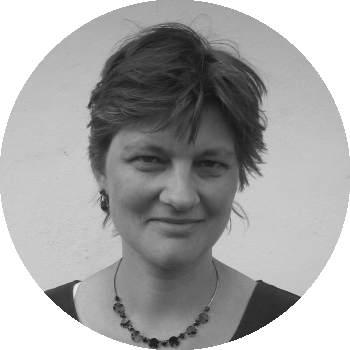
Birgitte Ravn Olesen is volunteer in local community work with refugees and associate professor at the Department of Communication and Humanities, Roskilde University. She has worked with experimental qualitative methods in collaborative research projects for many years and facilitated several “forumplays” as the one described above. She is at the moment writing an article on how to produce context-sensitive knowledge through “forumplays” in educational settings.
The Diversophy cross cultural training game has been used over many years to prepare employees and individuals about to be sent on assignment in different cultures. The game has had global success and its founder, George Simons, in 2015, wondered if it could be adapted to serve a different purpose in the context of the refugee crisis unfolding at the time. Since then work has been done to adapt the game to the Finnish and other contexts and is currently being adapted to fit the Danish context.
Line Rugholt and Anne Fox propose to run a workshop demonstrating the adapted version of the Danish game so that participants can experience for themselves how the game could be used to bring together Danish residents and newly settled refugees. The game addresses the problem that it is difficult for the newly settled refugees to make low risk social contact with Danes.
In order to adapt the game which centres on common situations, the focus has been shifted from the business context to the family and everyday life context and therefore covers interactions that you may have in shops or as a parent of young children for example.
The game is played in small groups. Ultimately the idea would be that the small groups would include both native Danes and the target refugee group. However a good proxy would be the mixed culture group one often meets in the university context such as the Roskilde Imagine Europe Open Seminar. The card game is presented in English but when finished will include translations into Danish and Arabic. We are considering whether it might be worthwhile to also translate into the Eritrean language since many refugees in Denmark come from Eritrea also. We anticipate that the refugee target group will be able to cope with simple Danish. Since we are in the process of development, the cards will only be available in English during the seminar.
The workshop will consist of three parts:
1/ Short introduction and background to the game (ca. 10 mins)
2/ Playing of the game (45-60 mins)
3/ Debrief (15 mins)
As we work on the adaptation, we begin to realise the critical importance of the debriefing part of the game. In its original format, the game is designed to lead to intense personal reflection. In the adapted version of the game, the intention is to promote a better mutual understanding on both the native Danes side and the newly settled refugees. However, we also recognise that by bringing together people from the same location, this is an opportunity to promote ongoing interaction between the native Danes and the refugees. This is especially important now that the crisis has fallen off the front pages of newspapers. The refugees who have been here for one or two years are in danger of being overlooked.
At the conclusion of the workshop we will be very glad to receive suggestions about how the game could be followed up with further local interactions.
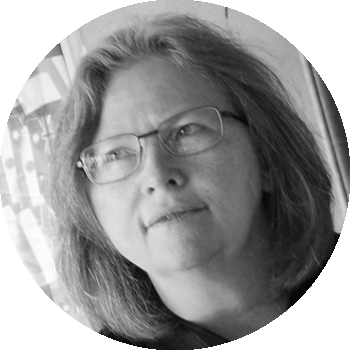
Anne Fox has worked for many years as a project partner and coordinator, mostly European projects in the field of education. She has been co-producer of the podcast Absolutely Intercultural since 2006 and is a regular speaker at educational conferences.
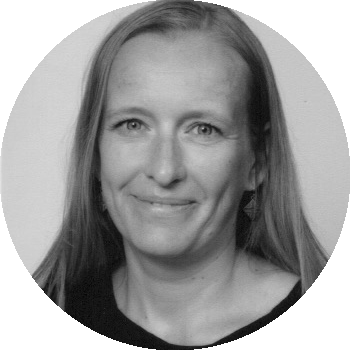
Line Mark Rugholt has worked for ten years as a cross-cultural expert, been a member of SIETAR India’s board and has spoken at SIETAR India’s international conference. Currently, Line is working as a teacher specialising in Danish, English and Religion.
++++++++++++++++++++++++++++++++++++++++++++++++++++++++++++++++++++++++++++++++++++++++++++++++++++++++++++++++++++++++++++++++++++++++++++++++
3 PM – 5 PM | FILM SCREENINGS & PANEL DISCUSSION at The Old City Council Hall
++++++++++++++++++++++++++++++++++++++++++++++++++++++++++++++++++++++++++++++++++++++++++++++++++++++++++++++++++++++++++++++++++++++++++++++++
The French-German and European television channel and media organization Arte is co-funded by the EU and has a founding mandate that stipulates its purpose to be the creation of media that encourages European unity.
This film, Ten Europes, based on my fieldwork at the channel ARTE, will feature montages of clips and stills from Arte's programming, and inspired by its programming, which will argue for ten “visions” of Europe that are in evidence at the channel. As the film progresses, these "Europes" will transition from the narratively concrete (e.g., clips from Arte-produced documentaries about the destruction of World War II, from broadcast classical music concerts) to the less concrete (e.g., clips from fiction films about domestic life in Europe) to the metaphorical (e.g., sculpture, cave paintings).
The film will therefore attempt to identify and describe the multitude of Europes that are being constructed at Arte (and through other audiovisual forms and media that migrate across the continent), while arguing for different degrees of iconicity and concreteness of representation. The thesis of the film’s montage is that Europe is constituted, at least by mass media, not only through several simultaneous and competing narratives, but also through a variety of representational strategies and modalities.
The film will be approximately seven minutes in length and will be preceded by an introduction to the author’s fieldwork (five to seven minutes), which will provide context for the film.
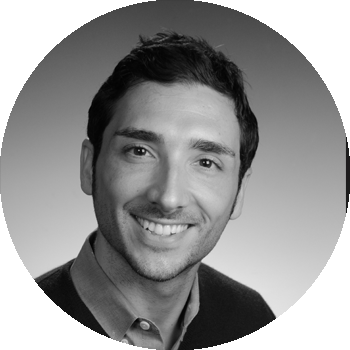
Damien Stankiewicz is Assistant Professor in the Department of Anthropology at Temple University in Philadelphia. His research examines ongoing mutations of national and trans-national identity in Western Europe, and especially France and Germany. As a visual anthropologist and anthropologist of media, his research focuses especially on the role that mass media play in (re)configurations of belonging and “culture,” as the nation-state vacillates between Europeanization, globalization, and reconsolidation. His first book (University of Toronto Press, 2017) examines how staff at ARTE—a self-consciously transnational television channel located on the French-German border—go about crafting media intended to promulgate a trans-border and pan-European culture. His second project focuses on the uses of media, and especially new media, by far-right nationalist political parties in France.
In the wake of the Brexit referendum in June of 2016, Avaaz, a digital petitioning platform, invited recipients of its newsletters and facebook alerts to demonstrate in the form of a ‘kiss chain’, which took place in four major capitals across Europe. The event promoted the kiss’ ‘live travel’ from Rome to Paris, to Berlin and finally London via iPad, in order ‘to send a signal of love’ (Avaaz’ wording in quotation marks).
‘Click to Remain’ is a collage of participant voices and mixed media imagery. It juxtaposes memories and thoughts with poetic and machinima imagery, thus representing both physical as well as digital aspects of activism. Five participants of the kiss chain evolve on their experiences with Avaaz, the event itself, and their understanding of love. The usage of the word 'love' is prevalent in activist jargon and hashtag culture, and advocated within Avaaz’ language. However, individual subjective interpretations of this feeling are not necessarily congruent or easily defined, as interviews with participants show. Instead, the term may hold a commercial and media value which to profit from is in Avaaz’ interest.
The film examines the implications of digital activism both on an emotional as well as an economic level. It points to a possible paradox: where people long deeply to react to the results of global capitalism, apparent in the topics Avaaz addresses - climate change, animal abuse, political upheaval and war - their online activities are being capitalized on. The call to action, however, remains a flexible one: in an increasingly mobile and digitally active society, as one participant puts it, 'you can spread out your commitment to almost everything.'
Titel/title: Click to Remain
Regie/director: Valerie v. Kittlitz/Maren Wickwire
Laufzeit/running time: 23 min.
Vorführformat/screening print: digital video file
Originalsprache/original languages: English/German
Untertitel/subtitles: English
Kamera/director of photography: Valerie v. Kittlitz/Maren Wickwire
Schnitt/editor: Valerie v. Kittlitz/Maren Wickwire
Ton/sound: Valerie v. Kittlitz/Maren Wickwire
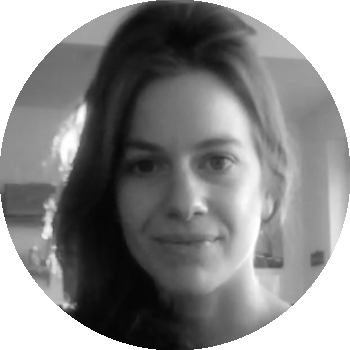
Valerie von Kittlitz is a designer and visual anthropologists. She holds a BA from Central Saint Martins, London, and an MA from Freie Universtitaet, Berlin. Her research focuses on the commercialization of political activism, movement makers, and consumer culture. Her MA thesis project engaged with the motivations of the makers of Fashion Revolution, a digitally networked campaign on garment worker rights and the environmental impact of global textile production.
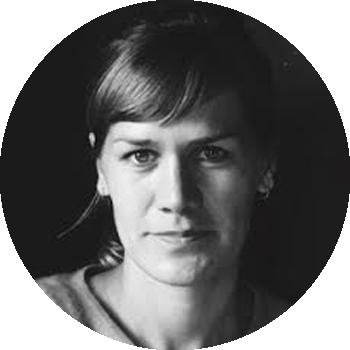
Maren Wickwire is a filmmaker and visual anthropologist whose work spans directing, producing and filming documentaries and multivocal video installations. She has worked closely with the Harvard Humanitarian Initiative and the US Institute of Peace, and is a long time creative collaborator of ART WORKS Projects, focusing on issues around peacemaking, conflict resolution and global migration. For her MA in Visual Media Anthropology at Freie Universitaet Berlin, she has just completed research in Cyprus on Filipina domestic workers and transnational motherhood.
This research aims to explore the rich language processes of poetic documentary and the concept of Photogenie as defined by filmmakers and film theorists of the 1920s, Louis Delluc and Jean Epstein. Photogenie has been described as “the magnification of beauty already existing in the world”, and as being, “created out of the encounter of cinema and the world” (Strauven 2014, p.135). The photogenic concept identifies both the quality of camera functions and techniques, as well as the processes of editing. I will demonstrate that these processes are essential in creating semiotic meaning and contributing to representations of place within the narrative of a documentary. This research examines the progressive nature of documentary, and the potential of poetic approaches in engaging an audience in a unique experience of reality.
My research at Bournemouth University is a PhD by practice, and my intention is to produce a thesis and a series of short documentaries/installation films that extend from initial theoretical research and engage with an epistemological debate, with Ukraine as my chosen cultural site of interest. As a result, the signifying potential of a poetic documentary will also address the question of representation, ‘what is Ukrainian identity?’ interrogating the meaning of both ‘Ukrainian’ and ‘identity’.
I believe that this is a crucial time to record and encourage debate about Ukraine and the surrounding issues of a European community. More recently, an important national policy for Ukraine appears to be the desire to forge alternative political and economic alliances, such as integration with NATO and membership of the European Union. As the EU struggles to maintain core values that show respect for cultural difference and the diversity of ‘other’ societies, Ukraine embraces EU communities. This first film is a result of visiting Kyiv as it hosted this year’s Eurovision Song Contest, an important event for Ukraine in welcome competing countries, but also, a chance for outsiders to experience Ukrainian culture, history and its citizens.
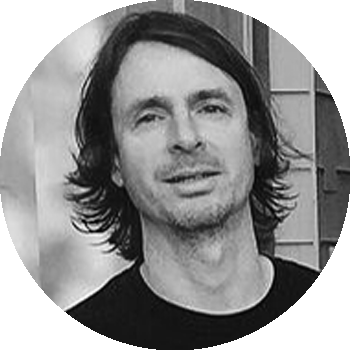
Mike Latto is a filmmaker and a lecturer in film at Brockenhurst College, England. His moving image work has been exhibited at a range of venues including the Ivan Dougherty Gallery, Australia and the Tate Modern, London. His present research on poetic documentary and Ukraine is the result of undertaking a practice based PhD at Bournemouth University Media School.
Europe is facing a profound transformative period. Exploring how the EU’s governments are responding to the economic and migration crisis is providing valuable insights in its present functioning. HotSpot is a research/art film addressing these current affairs, and intends to reveal a future prognosis by highlighting a particular case.
Eleonas, a dilapidated industrial area, central of Athens, Greece, sets the stage. In the midst of this zone, a supposedly ‘transitional’, refugee accommodation centre is located. Additional each weekend an ostensibly government tolerated, extremely chaotic trash- fee market is organized there. Clubs of garbage collectors joint by a bizarre eclectic rabble of multi-ethnic urban scavengers, are selling their junk of questionable origins. The disparate and incompatible users of this area are forming fascinating synergies but are also experiencing obvious collisions by trespassing each others’ demarcated territories.
By following and observing how the refugees are utilizing this market to build their ‘temporary’ homes and lives and how they try to regain identity through their actions, a glimpse of their prospect is revealed. Parallel to this reality, it is clearly exposed how Europe and Greece are dealing with their impending predicament.
Indisputably an absurd situation, but could we assume that in a distant future this seemingly illicit pseudo-economic insanity might become ubiquitous, wherever the income divide is increasing and where displacement of people is becoming pervasively prevalent. Does this phenomenon disclose something about our coming reality of tomorrow?
In addition: All footage was secretly filmed, due to the situation where lots of obscure and illicit activities were happening, which obviously was intended to stay below the surface. This complicated at one hand the process of gathering footage, but also provided a unique insight in Greece's pseudo economic layers of society. Two weeks after finishing shooting the footage, the market was cleared, and has not been allowed to be organized again, resulting that this bizarre situation does not exist anymore, which makes this film one of the little documented evidences of the existence of this market as a historical document. The film entered the domain of underground production as most subsidizers were not feeling comfortable to invest in a project which revealed direct effects of EU policies implemented in Greece. The budget of this film was less than 1000 US dollar.
Artist: Tony Maslić
Title artwork: HotSpot
Year of Production: 2016/2017
Medium: Digital Video
Duration: 26 minutes
Information: http://tonymaslic.com/hotspot/
HotSpot: Behind the scenes
It's almost sunset when I arrive at a dusty crowded swarm of people. They seem to come from everywhere. The place, located at the edge of the centre of Athens, is vibrantly buzzing in chaos. The surreal events which are unfolding in front of me are like a reminiscence of a film-set from a dystopian sci-f B-movie. Initially it appears like a regular fee market, but much more trashy and haphazardly. Strange, hectic, oppressively ominous, and even hostile at first glance, but there is something there, which is so mesmerizing and captivating, that it must be of importance. This market is telling exactly the story I was looking for. In the midst of this disorderly mess, an accommodation centre is located, which hosts several thousand refugees. Initially the market was organized by several associations of garbage collectors, later joint by a rabble of multi-ethnic urban scavengers. A majority of the street vendors are gypsies, ironically for centuries without a permanent home, contrasted by refugees who recently lost theirs. The gypsies seem to understand and associate themselves with the refugees. Their situation, although different, is somehow reflected by the homelessness of the newcomers, except that they will not have the prospect or promise of transition for a better life. The activities there, are mostly unauthorized, but somehow tolerated, generating a pseudo economy. Obviously due to increased poverty, everyone who could trade whatever they could get their hands on, was drawn to this place to try their luck or to make a little money to survive the day. This had nothing to do with Europe, or maybe this is exactly what Europe is all about right now. A notion of safety and stability seem not to exist here and somehow feels like something which might happen to all of us. I stayed for 3 months to research the market and to shoot in secret all footage. It was not possible, appreciated or allowed to film or take photographs freely. HotSpot was born. It raises questions, it foresees something to come. It is like a indefatigable witness of how international and local authorities are failing to solve a humanitarian and economic crisis. It is as if the EU is using the situation to either intentionally deter more refugees from coming, or incidentally because of incompetence to find solutions. Both reasons are scary. It reveals a crisis of ideology rather than a crisis of finance, where people are instrumentalized as political tools. Indicatively the end of human rights. Where former relaxed open borders are turning into heavenly guarded barriers, armed with high voltage charged fences. Where corporates are legally allowed of depleting resources and livelihood of a population increasingly trying to survive in poverty. An age of corporate colonialism and exploitation, where stability and prosperity are at stake, even within the constitutional framework of an increasingly divided European Union.
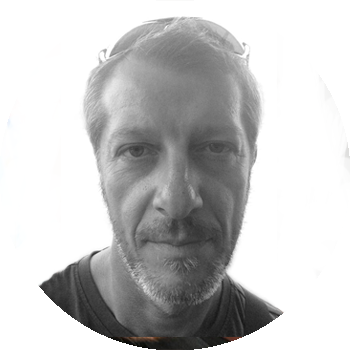
Tony Maslić has been working in a multitude of media, executed usually in cross-disciplinary installations and/or film. Throughout his work he has explored the relationship of space with politics, urbanism, social economics, psychology, pre- and post war social conflicts, social and cultural displacements, violence, group dynamics, cultural identity and the effects of capitalism. He is also interested in the dichotomous interrelationships between digital art and physical objects and the artificial construction of reality.
++++++++++++++++++++++++++++++++++++++++++++++++++++++++++++++++++++++++++++++++++++++++++++++++++++++++++++++++++++++++++++++++++++++++++++++++
++++++++++++++++++++++++++++++++++++++++++++++++++++++++++++++++++++++++++++++++++++++++++++++++++++++++++++++++++++++++++++++++++++++++++++++++
Dramas fuelled by financial instability, the refugee influx, Brexit, and the shifting directions of newly-elect governments powerfully reveal a breakdown and need for re-negotiating a shared sense of ‘Europe’—both in terms of its meaning and in terms of its value as a common political, social and cultural project, and as provider of an agonistic identity to its citizens. With the collapse of the progress narrative—the idea that we’re moving towards ‘ever closer union’—space has been opened for the re-emergence of older visions of, for and about Europe, and for new visions to be developed and circulate. These intersecting and competing visions range from pleas to renew the prior consensus, to dreams of renegotiating Europe from the ground up, or of retreating from Europe altogether, and withdraw into more ‘traditional’ and ‘natural’ units, based in nationality, ethnicity or religion. These visions come from many different actors within Europe and from outside of its borders, including from migrants seeking refuge from structural and political violence.
As these actors express new social imaginaries, they also, and on larger or smaller scales, (attempt to) mobilize publics around their competing visions—engaging them in struggles to translate these imaginaries in material realities, to bring about a European space, or set of spaces, that may suit their needs, desires and phantasies.
While it is not clear which vision or set of visions will stand when the dust of recent ‘crises’ had settled, it remains a paramount task for us as students, artists, and academics to reflect, to critique, and to take action as history unfolds.
++++++++++++++++++++++++++++++++++++++++++++++++++++++++++++++++++++++++++++++++++++++++++++++++++++++++++++++++++++++++++++++++++++++++++++++++